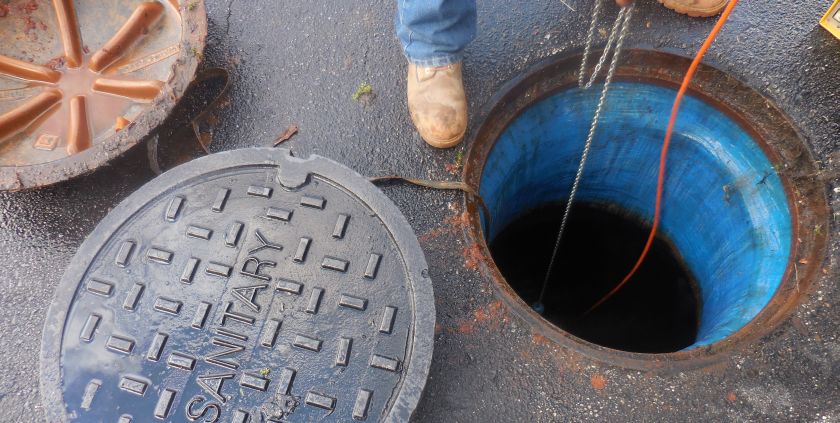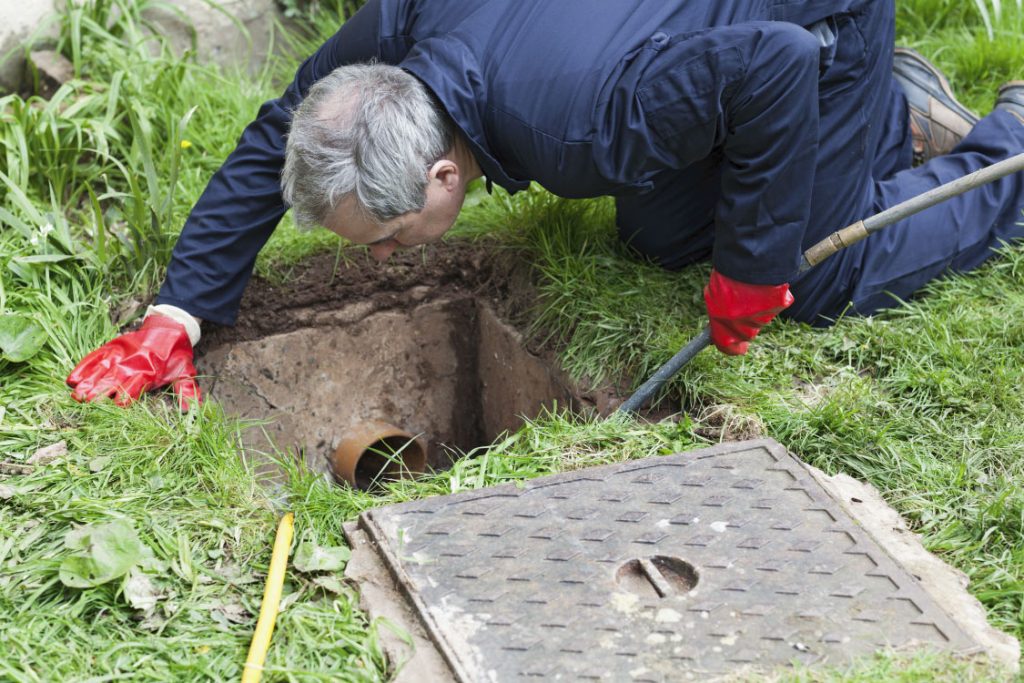Steps to Manage a Blocked Drain Before Seeking Professional Assistance
Steps to Manage a Blocked Drain Before Seeking Professional Assistance
Blog Article
How do you feel about What I learned from trying to deal with a clogged drain?

Introduction
Dealing with a blocked drainpipe can be a frustrating experience, disrupting everyday activities and potentially causing damages to your residential or commercial property. However, prior to connecting to plumbing specialists, there are actions you can require to deal with the issue on your own. In this guide, we'll discover do it yourself remedies and preventive measures to tackle an obstructed drain efficiently.
Recognizing the Issue
The very first step in dealing with an obstructed drainpipe is recognizing the indications. Slow water drainage, gurgling audios, foul odors originating from drains, or water backing up are common signs of an obstructed drainpipe. Identifying these indicators early can help protect against further issues.
Picking the Right Pipes Service
When selecting a plumbing service, think about aspects such as experience, licensing, and consumer reviews. Select a reputable plumbing with a performance history of high quality workmanship and transparent rates techniques.
Price Factors to consider
The price of expert drain cleaning services can differ depending upon the seriousness of the blockage and the plumbing professional's prices. Request quotes from multiple providers and ask about any type of added fees to ensure transparency and prevent shocks.
Safety and security Precautions
When trying DIY drainpipe cleansing, focus on safety and security. Use safety handwear covers and glasses to stay clear of contact with harmful chemicals or germs. Never ever mix various drain cleaning products, as this can produce hazardous fumes.
Case Researches
Real-life examples illustrate the effectiveness of DIY remedies and the relevance of prompt professional intervention in dealing with drainpipe blockages.
Common Root Causes Of Blocked Drains
Recognizing the variables that add to drain pipes clogs is necessary for efficient resolution. Usual perpetrators include hair, soap residue, oil, food particles, and foreign objects like hygienic products or paper towels. Tree origins attacking below ground pipes can also trigger considerable clogs.
DIY Solutions
For small obstructions, several do it yourself services can be reliable. Pouring boiling thin down the drain can aid dissolve grease and particles. Baking soda and vinegar or a combination of salt and baking soda can work as natural cleaners. Making use of a plunger or pipes serpent to dislodge obstructions is one more alternative.
Tools and Equipment
Having the right tools handy can make DIY drain cleaning up a lot more reliable. A bettor is a functional device for clearing blockages in sinks, toilets, and showers. A plumbing snake or auger can reach deeper clogs, while drain cleaning chemicals can be made use of cautiously for persistent clogs.
Preventive Measures
To prevent future blockages, adopting preventive measures is important. Install drain guards or filters to catch hair and debris prior to they go into the pipes. Consistently flush drains pipes with hot water to liquify grease build-up, and prevent getting rid of oil or solid waste down the drain.
When to Call an Expert
While DIY solutions can solve minor obstructions, specific indicators suggest the need for expert assistance. Consistent clogs, foul odors in spite of cleansing initiatives, or multiple drains supporting all at once are red flags that require skilled treatment.
Verdict
By following the tips described in this guide, you can successfully deal with blocked drains and avoid future plumbing issues. Whether opting for DIY solutions or looking for specialist help, timely activity is crucial to preserving a healthy pipes system and protecting the integrity of your home.
10 TIPS TO CLEAR ANY BLOCKED DRAIN
SIGNS OF A BLOCKED DRAIN
Blocked drains can be a source of property damage and health problems for people and pets. The early warning signs of a blocked drain are:
Overflowing
You’re probably quite used to everything flowing down your drain. As a result, it’s quite alarming seeing water spill back up. If your drain is overflowing, that means you’re facing a blockage.
Gurgling sounds
Gurgling sounds indicate that the water is pooling and pushing against the pipe. If you experience this, it’s often the case that a blockage is a problem.
Slow draining
When emptying your sink or taking a shower, you might notice that the water pools for longer than expected. Usually, the problem worsens rather than getting better by itself, which suggests that the blockage is growing larger.
CAUSES OF A BLOCKED DRAIN
Although most people use their drains appropriately, it’s quite easy to make mistakes. Occasionally, everyday use results in blocked drains too. Common causes include:
Tree roots
Tree roots won’t be the cause of local drain blockages, but they can disrupt your main sewage system. The root keeps growing until it breaches the pipe and causes a blockage.
Toiletries
Although toiletries are essential, some can cause drain blockages. For example, nappies, baby wipes and sanitary products should not be flushed down the toilet.
Foreign objects
When you have kids, there’s always a risk they’ll flush something unusual down the toilet. Toys and other foreign objects become lodged in the u-bend, resulting in a blockage.
Mineral Buildup
When minerals such as calcium build up in your pipes, this causes constriction. Although this may not cause a blockage on its own, it does make it easier for other types of blockages to form.
Soap
Although liquid soap may not cause drain blockages, solid soap bars can get lodged within pipes until they eventually break down. One way to stop this from happening is to use a mesh wire guard to cover plug holes.
Natural Debris
Natural debris can fall into your outdoor drains, especially when you don’t use gutter guards. This usually means leaves and twigs, although it can include dirt and grit too.
HOW TO CLEAR A BLOCKED DRAIN
Boiling water
Boiling water is useful for tackling blocked drains caused by grease, conditioner, and some other kinds of toiletries. This is because these substances have a low melting point, and the extreme heat helps to break them up. Boil a kettle with water and pour it down the drain to shift the blockage.
Natural cleaners
You can use some natural cleaners to create a fizzing effect that breaks drain blockages apart. Try pouring hot water down the drain, then follow it with one cup of bicarbonate of soda and a cup of vinegar. Leave it for ten minutes, then chase it with more hot water. A combination of the hot water and the natural cleaner mixture can break blockages up.
Caustic cleaners
Some stores sell caustic cleaners that take stronger action against drain blockages. It dissolves grease, fat, and oils, making it ideal for tougher blockages. Always follow the instructions on the packaging and ventilate the room before starting.
Plungers
As a simple yet effective tool, plungers can help to dislodge local blockages. They work by forming a seal around the plug hole, followed by a vacuum effect that removes the blockage.
DIY drain snake
You can make a DIY drain snake out of any thin metal wire, such as a coat hanger. Leave a hook at the end of the snake and insert it into the plughole. Try using it to fish out local blockages made of hair. This approach is most effective in showers.
https://preciseservices.com.au/10-tips-to-clear-any-blocked-drain/

I am just very taken with Tips for Dealing with Clogged Drains and Sewer Lines and I'm hoping you enjoyed the entire entry. Sharing is good. Helping people is fun. We appreciate reading our article about Tips for Dealing with Clogged Drains and Sewer Lines.
Request Estimate Report this page